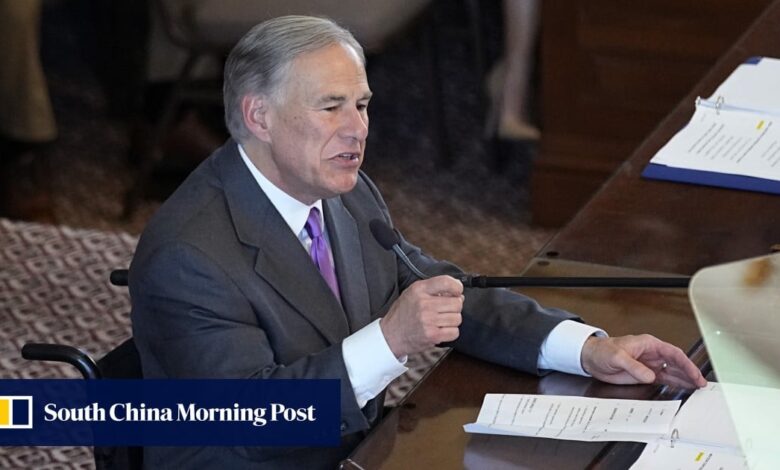Opponents of Texas ban on TikTok urge US federal court to halt directive over ‘far-reaching effects’

[ad_1]

Texas Governor Greg Abbott signed a directive to ban the Chinese-owned app on state-issued devices and networks in December, and a law codifying aspects of the ban was passed in June.
In July, the Knight First Amendment Institute at Columbia University filed a lawsuit to exempt public university faculty from the ban on behalf of the Coalition for Independent Technology Research – a group that includes Texas professors who say their work has been compromised after they lost access to the app on campus Wi-fi and university-issued laptops.
On Thursday, pro bono lawyers for the coalition filed for a preliminary injunction, or temporary relief from the ban, pending the outcome of the lawsuit.
“Suppressing research and teaching about one of the world’s major communications platforms is not a sensible or constitutionally permissible way of addressing the data-collection and disinformation concerns that Texas has identified,” said Jameel Jaffer, the Knight Institute’s executive director.
In a declaration filed in support of the injunction, Bruce Schneier of Harvard University’s Berkman Klein Center for Internet and Society called the ban “not just ineffective but counterproductive” and suggested nationwide data privacy laws as an alternative.
Schneier said any company – or foreign government – seeking to acquire data about Americans could readily purchase the information from data brokers or scrape it from social media sites.
Major US tech groups back TikTok in challenge to Montana state ban
Major US tech groups back TikTok in challenge to Montana state ban
“The Chinese government does not need TikTok to access large volumes of sensitive data about Americans,” he added.
Nor does Beijing need TikTok to spread its propaganda, Schneier said, noting that foreign social media platforms are at its disposal.
He added that TikTok was not distinctive in its data-collection practices, and was using trackers called “pixels” that gather data about people as they travel across the web, regardless of whether they are on the app.
Jacqueline Vickery, a professor at the University of North Texas who researches how young people use digital and social media, described how the ban had forced her “to abandon or suspend research projects” and change both the content of her courses and the way she teaches them.
“It has also limited my ability to participate in the process of peer review. It’s had a profound effect on nearly every aspect of my work,” she said.
Given the collaborative nature of research, the ban in Texas has affected researchers beyond the state and hampered public-interest studies on topics like disinformation, according to Ethan Zuckerman, a professor at the University of Massachusetts at Amherst.
US bill would ‘turn off tap’ for TikTok data to China, lawmakers say
US bill would ‘turn off tap’ for TikTok data to China, lawmakers say
A national-level bill restricting TikTok and supported by the Biden administration has stalled as well. It would grant the Commerce Department new authority to review, block and address a range of transactions involving foreign information and communications technology that pose national security risks.
[ad_2]
Source link





